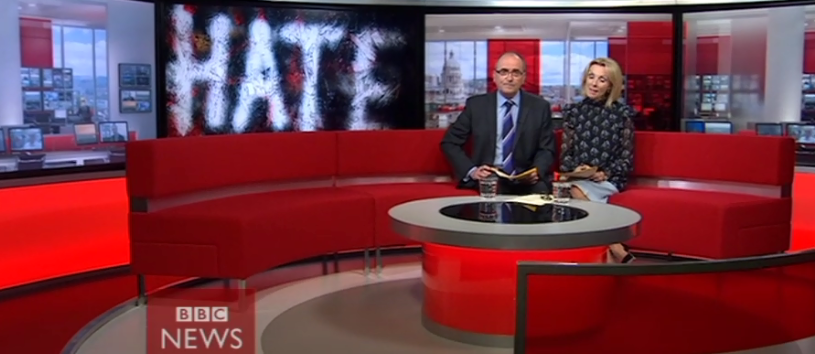Nottingham Citizens Hate crime study reveals surge in verbal and physical harassment
One of the largest studies ever conducted into hate crime has found more than a third of people in Nottingham surveyed have experienced hate crime (35%), an increase of 6% since the last citizen survey ‘No Place for Hate’ in 2013/14, with the majority happening in the city centre and public spaces.
As part of the report for Nottingham Citizens, part of community organising charity Citizens UK, the experiences of over 4,170 people in the city were collected, including frequency, causes and locations of hate crimes, building on five years of work to tackle hate crime in the city. The first part of the survey, published today, represents the experiences of 1202 people responding to a city survey. A second report on the experiences of 2968 school and college children is due to be published over the summer.
Most respondents in the city survey had not reported the crime to the police (79%). Of those who did, 58% were satisfied with the police response and 42% dissatisfied.

Sajid Mohammed, CEO of Himmah and Nottingham Citizens leader said:
"Hate crime is rising in our cities. Everyone from the new Home Secretary to Nottingham school girls as young as 12 have ended up victims of hateful slurs. Communities can and must change this and we need cooperation from all levels of Government right up to the Prime Minister. We also need others to act, including an end to hate crime complacency amongst social media companies, tougher action from police forces and better media reporting as part of a national response.”
Clive Foster, Nottingham Citizens leader and Senior Pastor of the Pilgrim Church said :
“I was racially abused in the city centre, just before Christmas, while I was waiting for a friend. I was shocked and hurt, I contacted the police and reported it, but I never heard back about any progress or outcomes. Hate crime needs to be taken seriously or trust in the police will be eroded and we will see divided communities. This report serves as a reminder that we can all do more to challenge hate and stop it becoming a cultural norm. Everyone has a stake, from schools, universities, businesses, the police and Government and I look forward to 800 diverse citizens standing together to say no to hate in Nottingham on Thursday.”
Dr Jason Pandya-Wood, an academic at Nottingham Trent University who helped produced the report and analyse the data, said:
“These findings are deeply troubling. Behind the worrying statistics are stories that highlight the impact that these crimes have on individuals and the motivation is clear: there are deep seated issues that need to be addressed.
The report reflects national data that shows that around the time of major events, incidents of hate crime increase. We noted that a number of participants had identified Brexit as being a driving factor.”
The report’s recommendations
A citizens assembly of 800 people will discuss recommendations tonight in the Albert Hall, Nottingham including the following recommendations.
The full list of recommendations is on p45 of main report:
1.We recommend that public, private, voluntary and other civil society organisations within Nottinghamshire commit to establishing Nottingham as a ‘Hate Free City’ by collectively resourcing the prevention of hate crime.
2. We recommend that a special purpose vehicle is established, comprised of civil society representatives and built upon the model of the previous Race Equality Councils. This forum should be responsible for owning the recommendations within this report and driving action in Nottingham.
3. Ensure Nottinghamshire Police are better equipped to understand and respond effectively to Hate Crime so that good practice spreads out amongst the whole force from the existing hate crime leads.
4. Media reporting: There was evidence that positive media campaigns and coverage were increasing awareness of hate crime and encouraging positive behaviours, whilst distorted and sensationalist coverage was driving hate crime.




